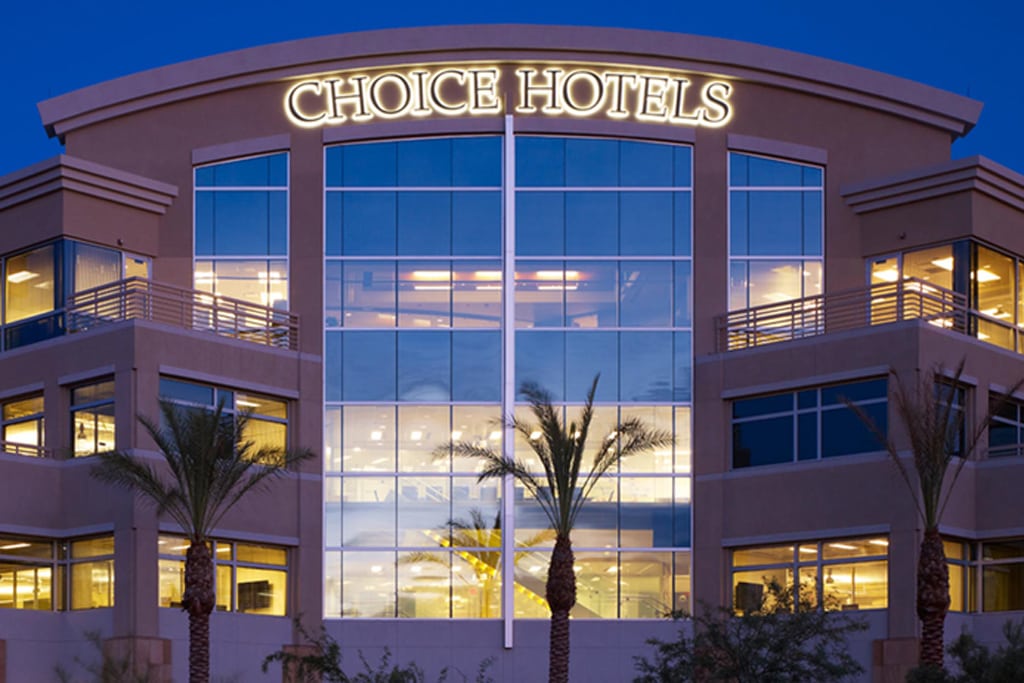Skift Take
Choice's decision to build its own reservation system in-house is a poke in the eye to the many technology companies that sell systems to hotel chains.
Choice Hotels has moved its 6,500 franchisees to a new central reservation system it built in-house.
The tool aims to help the hotel chain — whose 11 brands include Comfort Inn and Econo Lodge — better analyze data about customers and hotel owners.
The Rockville, Maryland-based chain has begun to use the platform to set rates and availability and to manage bookings made via its desktop, mobile websites, and mobile app.
Remarkably, there have been no reports of disruptions, as the company deployed the system on a property-by-property basis in phases in recent months.
The system processes bookings for hotel rooms, meeting rooms, vacation rentals, and vacation package offerings all in one interface — instead of the patchwork of systems the company had used before.
Like other hotel groups, Choice had found that its technology platform had become outdated and was no longer able to support a recent exponential jump in data requests. As more people search for travel online, they are sending more data requests to hotel systems.
Choice’s mainframe-based legacy systems — a patchwork of in-house hardware pieced together on mainframe systems and IBM Informix — were unable to handle the volume well. But its new cloud-based systems can scale in size to meet surges in volume and maintain fast response times, the company said.
The new platform, called ChoiceEdge, offers a foundation that is particularly relevant for its vacation rental and meeting space products. Since 2015, those two products have become promising lines of business, but the underlying hotel-focused software wasn’t enabling the company to develop these products to their full potentials.
Advanced IT platforms may also help hotels compete with online travel agencies by providing more comparable qualities of direct online service.
Choice’s franchisees have seen more than 60 percent of their revenue come from direct bookings so far this year, said new CEO Pat Pacious on the company’s third-quarter earning’s call late last year.
Choice’s new system will be more flexible in adapting to new technologies, such as voice search and machine learning, than its old one was, Pacious said.
The company is already experimenting with voice tech, Pacious previously told Skift.
In-House Is in the House
Choice’s move is the first U.S. hotel company to build a central reservation system in-house in a few decades.
Pacious compared it to updating transportation infrastructure, saying it can sometimes be easier to build new bridges than fix existing ones.
The project represents lost business for the major technology companies that sell comparable systems. Commercial talks are private, but the usual suspects of hospitality technology providers — Amadeus Hospitality, Oracle Hospitality, Sabre Hospitality, and Shiji — probably pitched their services.
In 2015, the same year Choice began its in-house IT effort, the comparably sized InterContinental Hotels Group hired Amadeus Hospitality to switch it over to a new cloud-based reservation system.
That project — affecting brands like Holiday Inn and Crowne Plaza — is expected to be fully deployed by late 2018 to early 2019.
Other hotel groups need to review their central reservation systems, too.
A case in point: During an investor day last week, Carlson Rezidor, which has 1,440 hotels, said it intended to update several of its IT systems. It will move from an old system, developed in-house, to cloud-based platforms.
When asked why Choice decided to create the project in-house, Brian Kirkland, vice president of engineering, said, “We understand our customers’ needs and what our priorities for the future better than anyone, and we already had a track record of technology innovation.”
The move cost “tens of millions,” the company has said.
But it was “not a cost-savings play” as much as “infrastructure investment,” Kirkland said.
Since 2015, Choice has added 190 positions for software engineers, technical analysts, and IT leadership positions at its Phoenix operation. It will be interesting to see how it redeploys these positions now that the system has been all-but-fully-implemented.
Choice is in the final phase of its project, with about a month or so left. It is now mainly focused on integrating with 30 third-party channels, such as online travel agencies and distribution systems, to distribute its rooms. Some, such as tech distributor Sabre, are already connected.
Analytics Tools
Consumers may see little obvious change in their experience. But subtle differences will become more apparent over time as the company said it will be better able to market to guests and to build profiles that reveal the preferences of repeat customers.
The system includes integration with a business intelligence suite of tools that will analyze the company’s data, such as to identify customer intent via booking behavior and analyze past booking behavior to provide more personalized services both for booking and when guests arrive at a property.
Choice may or may not decide to sell its software to others, the way it has for its property management systems through its SkyTouch Technology unit.
That unit offers technology services to its franchisees and independent hotels but has struggled to break even. A year ago the company had explored selling shares in the unit to industry partners but did not find an offer it liked, it said last year.
The company denied the conventional wisdom from some industry critics that the SkyTouch unit is treading water, pointing to its most recent financial statements showing it is approximately break even.
Have a confidential tip for Skift? Get in touch
Tags: choice, choice hotels, reservations systems
Photo credit: Shown here is the Choice Hotels western regional headquarters in Phoenix, Arizona. The company developed its new central reservations system in Phoenix for use by hotel owners and franchisees worldwide. Choice Hotels
